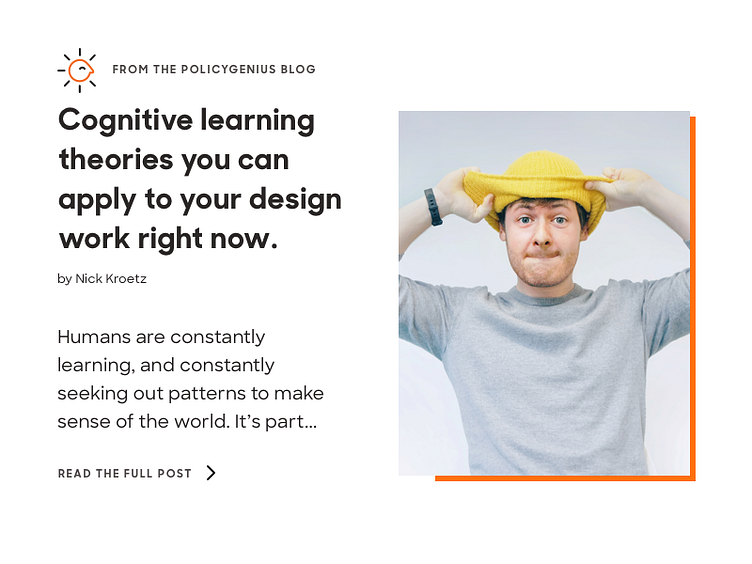Cognitive Learning Theories for UX Designers
How do people make decisions? What sorts of things govern their willingness to accept or reject a new experience? How can UX Designers understand those potential blockers, and help users make those decisions faster?
I love nerding out about cognitive learning theories, and have enjoyed studying how those processes work, and how teachers use them in the classroom. I've found a ton of parallels with UX Design work, and in this blog post, I attempt to explain my understanding of one of these theories, and how I've used it to make better, less scary experiences for our users.
Read the post here! https://medium.com/policygenius-stories/one-thing-ive-learned-from-my-teachers-that-has-helped-me-be-a-better-designer-77c273f074
What aspects or theories of psychology do you use in your design work?
